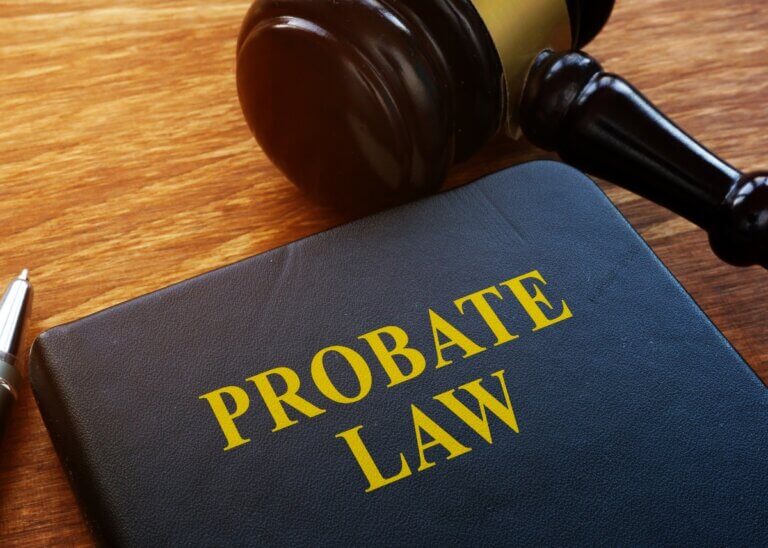The holidays are a time for family, celebration, and meaningful conversations. While discussing estate planning might not seem festive, it’s one of the most thoughtful and impactful gifts you can give your family. Open, honest communication about your estate plan can help avoid confusion, misunderstandings, or disputes in the future. Here’s how to approach this […]
Planning for Families
Have You Checked Your Beneficiary Designations Lately?
You regularly check the balances of your retirement, bank, and investment accounts. But when was the last time you checked the beneficiary designations on these accounts (and really, all the other accounts that allow you to name a beneficiary)? It may have been years since you first opened an individual retirement account, bought a life […]
How to Tackle the Busiest Season of the Year
As the end of the year approaches, many of us find ourselves balancing holiday gatherings, year-end tasks, and planning for the year ahead. While it’s tempting to put estate planning on hold during this busy season, taking a proactive approach now can provide peace of mind, protect your loved ones, and help you start the […]
The Corporate Transparency Act: What It Means for Terminated Businesses
With the recent implementation of the Corporate Transparency Act (CTA), many business owners are becoming aware of new compliance requirements, specifically the Beneficial Ownership Information (BOI) reporting. While it’s clear that active companies must file, many owners may not realize that businesses terminated between 2020 and 2024 are also required to complete this filing. The […]
Should Your Child’s Guardian and Trustee Be the Same Person?
If you have overheard any estate planning discussions, you have likely heard the words “guardian” or “trustee.” In estate planning, deciding who will ultimately be tasked with caring for your minor child or managing funds for their benefit is an important decision that requires consideration of many factors. Although there is no substitute for you […]
Don’t Let Your Estate Plan Go Up in Smoke
Fewer people are creating estate plans today than in years past. Research shows that, in 2024, less than one-third of Americans report having a will.[1] Every adult—whether they are 19 or 99—should have a will at a minimum. Many people can also benefit from estate planning documents such as trusts, powers of attorney, and advance […]
Should You Share Your Estate Planning Details With Loved Ones?
When you decide to create a comprehensive estate plan, there are many things to consider. One is whether to tell your loved ones about your plan and how much information to share with them. Estate planning can be a complex and sensitive matter, so your choice may depend on your unique relationships with loved ones […]
Can Artificial Intelligence Programs Write Basic Estate Planning Documents?
With the increased coverage of artificial intelligence (AI) and all of the applications it can have in our everyday lives, some people may wonder whether an AI program can create an estate plan for them. While AI may be able to generate basic estate planning documents, including wills and trusts, there is no guarantee that […]
How to Pick a Trustee, Executor, and Agent under a Power of Attorney
While the term fiduciary is a legal term with a rich history, it generally means someone who is legally obligated to act in another person’s best interest. Trustees, executors, and agents are examples of fiduciaries. When you select people to fill these roles in your estate plan, you are picking one or more people to […]
Won’t My Spouse and Kids Inherit Everything When I Die?
You may think that if you die while you are married, everything you own will automatically go to your spouse and children. But you are actually thinking of state rules that apply if someone dies without leaving a will. In legal jargon, this is referred to as dying intestate. In that case, the specifics will […]
Four Things Your Spouse Should Know Before You Die
It is normal for married couples to share almost every aspect of their lives with each other. But when it comes to death, even the closest couples might become tight-lipped about certain topics. According to one study, half of all couples fail to discuss their dying wishes.[1] Death is final for the departed. For the […]
Will My Revocable Living Trust Avoid Probate? It Depends.
If you have established a revocable living trust (which we will refer to simply as a trust), congratulations! You are on the right track in creating a comprehensive estate plan. However, you are only halfway there. Many people believe that because they took the time to create a trust, their estate will automatically avoid probate, […]
Understanding the Corporate Transparency Act
The Corporate Transparency Act (CTA) marks a significant change in how businesses and certain trusts report ownership information in the United States. If you’re a business owner, trustee, or beneficiary, it’s important to understand your responsibilities under this new law. In this blog, we’ll break down what the CTA entails, why it’s crucial, and who […]
3 Tips for Every New Homeowner
Congratulations on the purchase of your new home! Whether this is your first home or you are upgrading or downsizing from your current home, the purchase of a home is a big event in your life. When major life events occur, it is important that you have a plan in place to ensure that you […]
Estate Planning: Are Pensions Like Other Retirement Accounts?
The first private pension plan in the United States was established in the late 1800s. Through 1980, nearly 40 percent of Americans were covered by a traditional employer-funded pension. But employer-provided retirement plans have now largely shifted to retirement savings vehicles like 401(k) plans and Individual Retirement Accounts (IRAs) that place most of the savings […]
What’s Next for Your Estate Plan?
Having an estate plan is a smart way to protect yourself and your loved ones, both now and in the future. Your first estate plan is based on what’s happening in your life at the time it’s created. But life changes, and it’s important that your plan adapts as well. Sometimes we can build flexibility […]
Estate Planning: Setting Your Priorities Straight
Thinking about the future, especially what happens after we pass, can be tough. It’s not something we like to dwell on, but creating an estate plan can help you ensure your loved ones are taken care of. By setting clear priorities, you can craft a plan that reflects your wishes and provides a secure future […]
What Real Estate Owners Don’t Know Can Hurt Them
The old saying, “what you don’t know won’t hurt you,” does not apply to real estate law. Ignorance of the law is never an excuse. In the U.S., everyone is expected to know and follow the law, whether they are aware of it or not. For real estate owners, the legal landscape is full of […]
The Perils of Joint Property
People often set up bank accounts or real estate so that they own them jointly with a spouse or other family member. The appeal of joint ownership, specifically with survivorship rights, is that when one owner dies, the other owner(s) will automatically inherit the property without it having to go through probate. Also, joint property […]
How Are My Business Documents Relevant to My Estate Plan?
Studies consistently find that only about 25–35 percent of Americans have an estate plan, a shockingly low rate when you consider that, in the absence of a plan, the state—not you or your family—decides what happens to your assets, including your business interests. The overall business succession planning rate is higher, with about two-thirds of […]



















